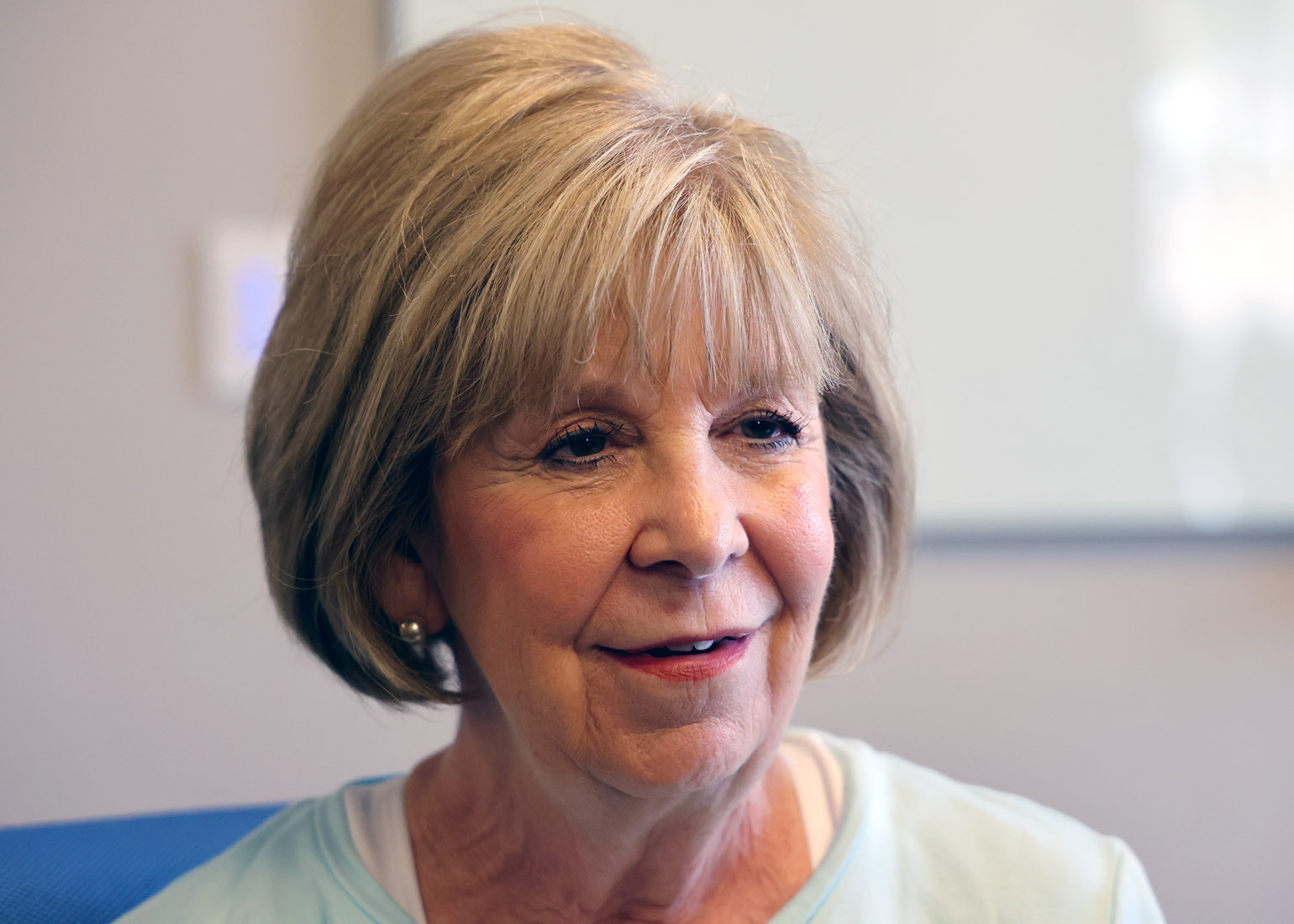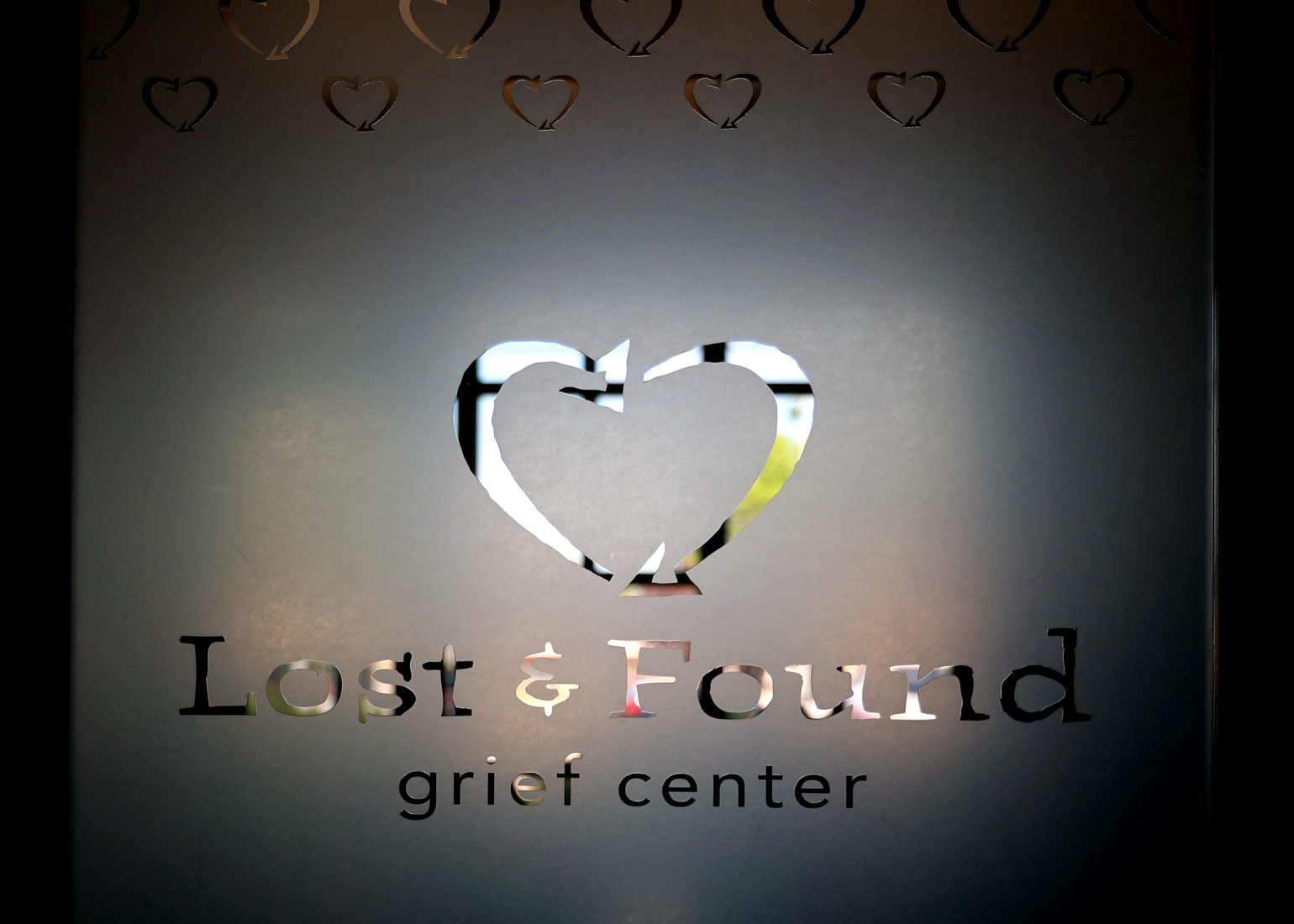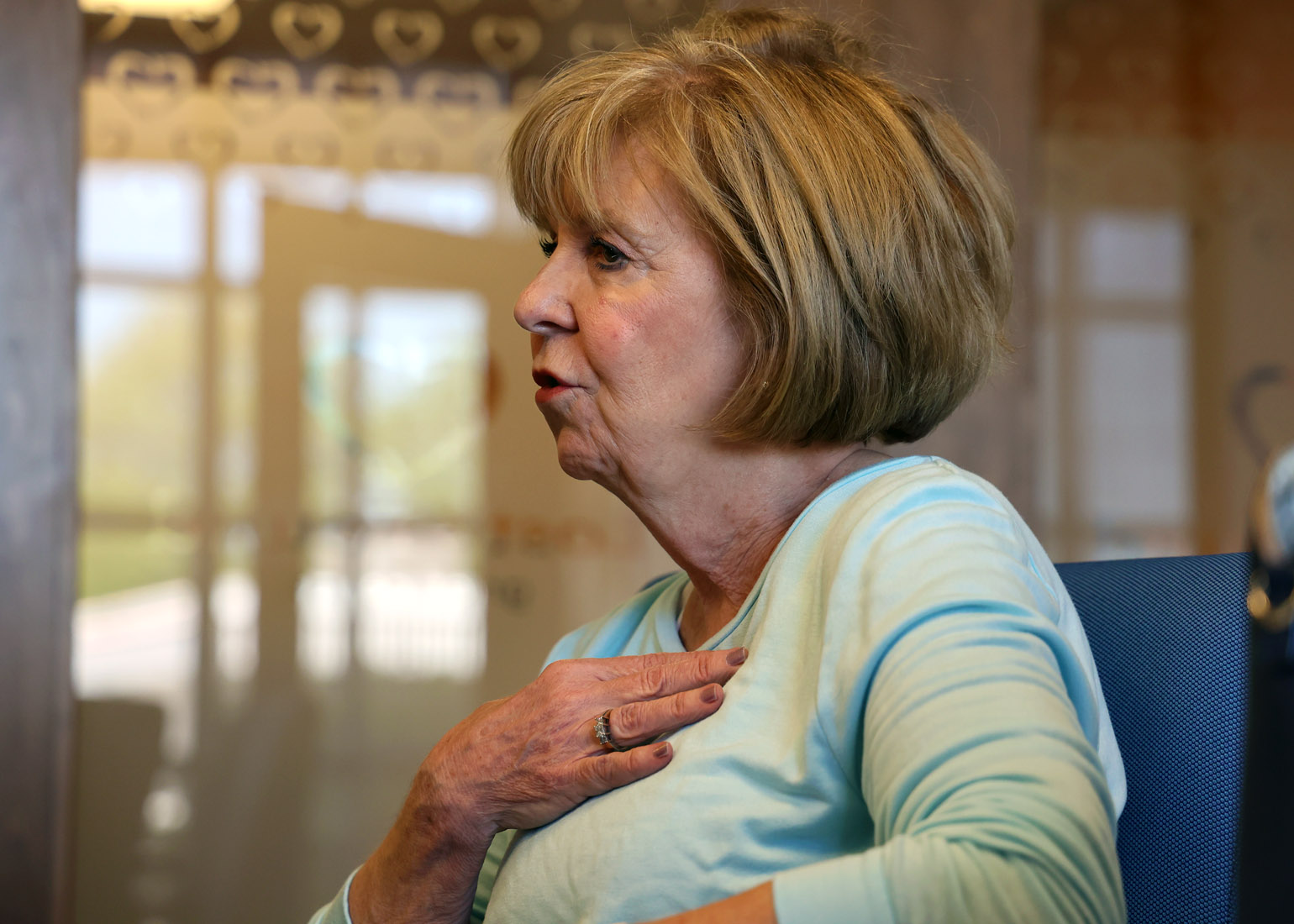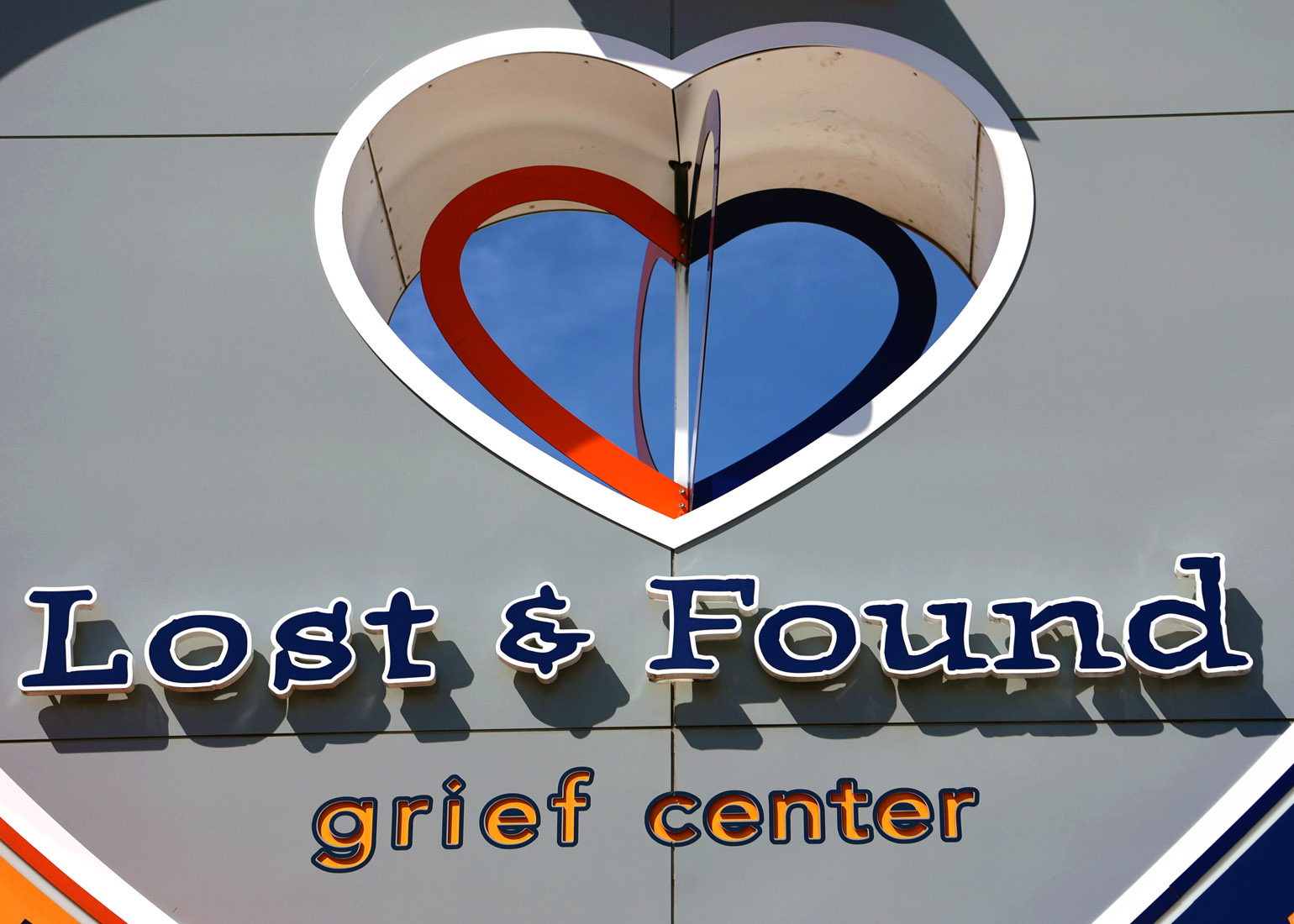For various reasons — the justice system, news media coverage, the circumstances of the death or the lifestyle of the victim and the conditions they lived in — families of crime victims tend to experience a more complicated grieving process than persons who lost a loved one to natural causes.
This is according to Karen Scott, co-founder and executive director emeritus at Lost & Found Grief Center in Springfield. Scott is a licensed therapist, with some 35 years’ experience specializing in grief and loss.
Families may not feel an outpouring of sympathy

“Stigmatized death” is a term used to describe deaths in which surviving family members do not feel the usual outpouring of sympathy, Scott explained. This might be due to the victim’s lifestyle, or maybe the perpetrator’s defense attorney attempts to place blame on the victim.
“This happens with substance abuse and suicide,” Scott said. “If somebody’s innocently driving down the road and a drunk driver hits them, that doesn’t happen.
“In stigmatized deaths, the victims don’t get the normal sympathy,” she said. “And (survivors) feel a lot of shame about the way their loved one died. So immediately that complicates grief — the lack of support and the internalization of some shame.”
Seeking justice puts grief process on hold
As a longtime grief counselor, something Scott said she’s observed about families of crime victims is the impact “seeking justice” can have on their grief.
“If their loved one died from a crime, often their way of dealing with that — because everybody has to find something to do with all that emotional energy — is to seek justice for their loved one,” Scott said. “So that becomes their focus.
“That is a longer journey than most people know,” Scott said. “Most people’s exposure to the criminal justice system is what they see on television, where someone is charged, they have a trial, there’s a verdict — boom, we are done. Our criminal justice system is long and delayed.”
In a criminal case, a common defense tactic is to “delay, delay, delay,” Scott said, with the hope that witnesses will change their minds about testifying in a trial or disappear.
With each of those “delays,” there was likely a court hearing the victim’s family had to mentally prepare and “gear up” to attend.

“The victim’s family gets themselves kind of psyched up to go deal with this again,” Scott said. “They get there, but nothing happens. So there’s a deflation and a mourning again because every time they have to go to face it, it dredges all of it back up. And so they really almost become victimized again just through the way our system works.
“They begin to wonder, is it ever going to happen,” she continued. “It’s just devastating. Because I think what other people don’t understand is the emotional energy it takes for them to pull themselves together and go be ready to live through this.”
Defense attorneys put blame on victims
Another common criminal defense tactic is to find fault with the victim, which can be incredibly difficult for the victim’s family to hear in court.
“(Defense attorneys) are trying to find some way to make it at least partially the victim’s fault, like: ‘She knowingly got in a car with a drunk driver,’ or ‘She was a substance abuser anyway and put herself in bad situations,’” Scott said. “You’re implying blame on the victim, which to a family is very hurtful.
“They are already enormously aware of the faults of their loved one, but to have another person so coldly put it out there is incredibly hurtful,” Scott said.
The process of depositions, which are sworn statements made under penalty of perjury as attorneys prepare for trial, can feel like a “ripping open of a wound,” for families, Scott said.
“And often they learn details in that process that they didn’t know ahead of time,” she said. “And so again, they have more to process and more pain that goes with that.
“Through the workings of the criminal justice system, there’s this emotional roller coaster, and grief is exhausting,” Scott said. “Each of these events adds to that exhaustion and they just get emotionally exhausted. A hopelessness starts to set in that, ‘This is never going to get resolved. I am never going to get justice for my person.’”
Plea deals, verdicts might not feel like justice
It’s estimated that 90 to 95 percent of criminal cases result in defendants taking plea bargains, in which the defendant admits his or her guilt and avoids a trial. With plea bargains, the prosecutor usually amends the original charges to a lesser offense or offenses.
“To the victim, that feels like that person just caught a break and my loved one will never have a break,” Scott said. “There are many things in our criminal justice system that feel like we’re bending over backwards to protect the rights of the criminal, which is so hurtful to a family.”

While a not-guilty verdict is going to be a crushing blow for the victim’s family, guilty verdicts aren’t necessarily going to heal all their pain.
“When they get a victory — a guilty verdict — they’ve put all their hopes in that and it is a small victory. But in the end, it doesn’t change the fact that their loved one is gone,” Scott said. “And they finally have to start grieving. They can only go so far in their grief until that court case ends because it suspends it for however long that (case) drags on.
News interviews can be disappointing
Scott cautions grieving family members about speaking to reporters. She wants them to be aware that despite how long the family spends with a reporter and how much information they share about their loved one, it’s doubtful all of that will wind up in the news story.
“News stories are limited,” Scott said. “They never tell the full story from the viewpoint of the family. And they want everything told about the mitigating things and how wonderful their person was … And that’s just not how (media) covers those things. You don’t do biographies of the people who die.
“They often feel like, ‘I spent all that time talking to a reporter but then they didn’t cover everything I told them.’ Well, you can’t,” she said. “There’s a naivete among most people until they get plopped into the criminal justice system, and so they get hurt and disappointed.”
Defendants may not take responsibility
Particularly when they face years in prison, defendants who cause a death don’t always take responsibility for their actions. This can leave the victims’ families with “an impotent rage,” Scott said.
“It heightens that sense of injustice and the feeling they’re getting away with it,” Scott explained, “because you at least want them to feel guilty, and you don’t get that.
“It doesn’t change anything when the person admits fault. It doesn’t change the outcome,” Scott said. “But it allows you to see them as a human being.”
Victim impact statements can be healing
One of the ways crime victim families work through the grieving process is by writing victim impact statements, regardless if they will have an opportunity to read them in court. Survivors sometimes have the opportunity to read victim impact statements during the sentencing phases of court cases.
“We encourage everyone here to do that, even the children. And we help them,” Scott said. “It’s hard because they feel like, ‘I’ve got to encapsulate on these two pages everything about this person, what they meant to me.

“But it’s very healing for them,” she said, “especially when that gets delivered, whether it’s by them or someone else. It’s a way of, ‘I got to say my piece. I got to say how much this person mattered.’”
About the Lost & Found Grief Center
The Lost & Found Grief Center offers a full range of grief support for children, families, young adults, and adults.
The center offers therapeutic grief support groups, at no cost to participants. All groups are led by professionals with a advanced degrees in counseling or social work. Groups emphasize talking about feelings, learning coping skills, and finding hope for the future. Groups offer a confidential safe environment where participants can speak freely without fear of judgement.
Individual grief counseling services are also available.
The Lost & Found Grief Center is located at 1555 S. Glenstone Ave.
Learn more about the Lost & Found Grief Center and find free resources at lostandfoundozarks.com.

